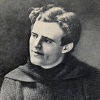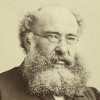“ Man naturally considers all that he can get as his own. ”
Jean-Jacques Rousseau, Emile, or On Education (1762). copy citation
| Author | Jean-Jacques Rousseau |
|---|---|
| Source | Emile, or On Education |
| Topic | |
| Date | 1762 |
| Language | English |
| Reference | |
| Note | Translated by Barbara Foxley |
| Weblink | http://www.gutenberg.org/cache/epub/5427/pg5427-images.html |
Context
“for as his wants increase in proportion to the ease with which they are satisfied, you will be compelled, sooner or later, to refuse his demands, and this unlooked-for refusal will hurt him more than the lack of what he wants. He will want your stick first, then your watch, the bird that flies, or the star that shines above him. He will want all he sets eyes on, and unless you were God himself, how could you satisfy him?
Man naturally considers all that he can get as his own. In this sense Hobbes' theory is true to a certain extent: Multiply both our wishes and the means of satisfying them, and each will be master of all. Thus the child, who has only to ask and have, thinks himself the master of the universe;”
source



